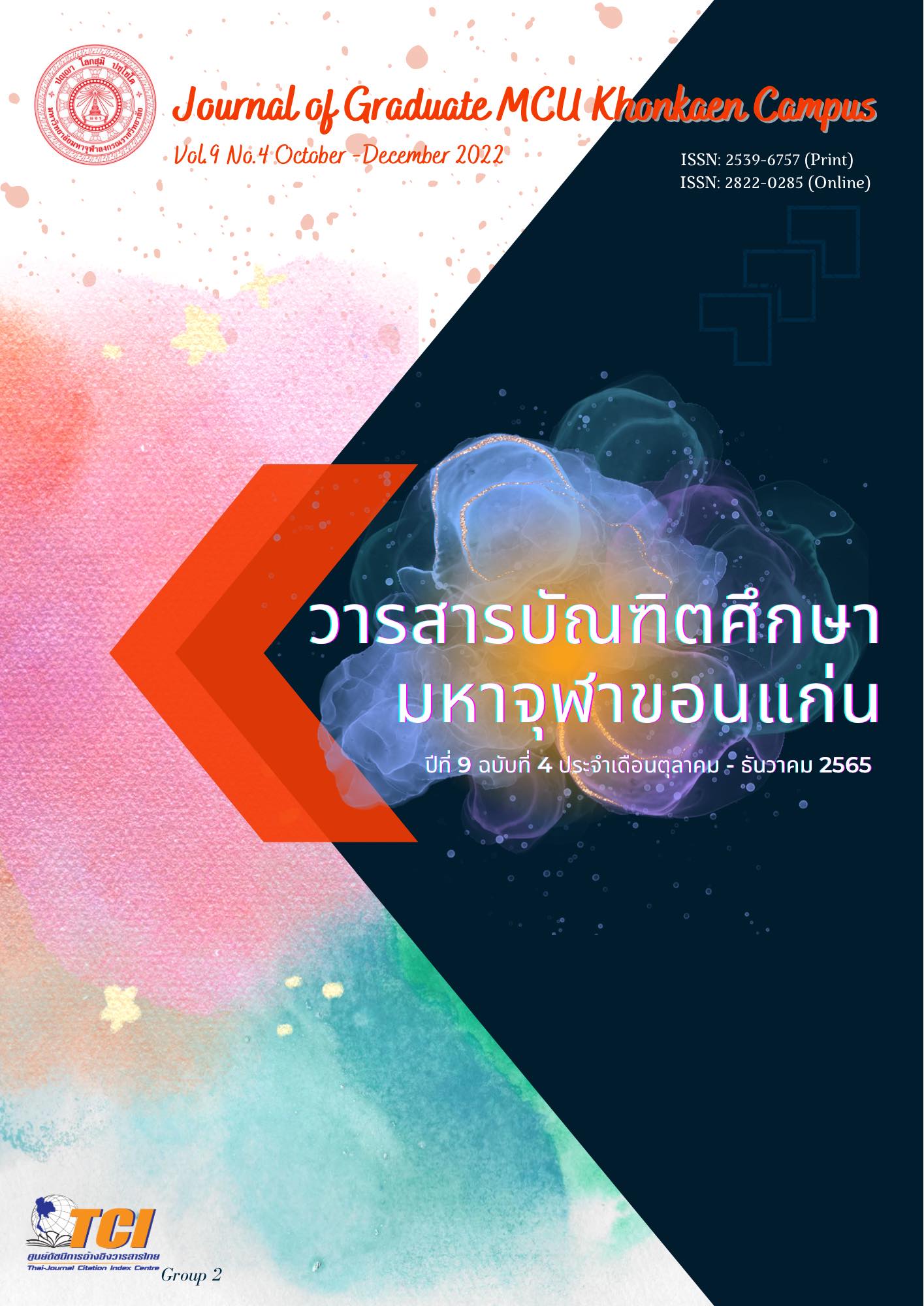การตีความทางพุทธศาสนาผ่านแนวคิดภาษาคนภาษาธรรมของพุทธทาสภิกขุ
Main Article Content
บทคัดย่อ
พุทธทาสภิกขุได้นามว่า “นาคารชุนแห่งเถรวาท” เพราะเป็นผู้ศึกษาพุทธศาสนาเชิงวิเคราะห์
จากพระไตรปิฎกและได้นำเอาหลักคำสอนมาประยุกต์กับการดำเนินชีวิต ท่านถือว่าศาสนากับชีวิต
เป็นสิ่งเดียวกันพุทธทาสภิกขุได้นำวิธีการอธิบายธรรมแบบใหม่ที่เป็นเหตุเป็นผลเข้ากับยุคสมัยมาอธิบายหรือตีความเพื่อให้มีความชัดเจน วิชาที่ศึกษาการตีความทางศาสนาเรียกว่า “อรรถปริวรรตศาสตร์”
มีการอธิบายใน 2 ลักษณะ ได้แก่1) การตีความตามประเพณีนิยม คือมีการตีความสืบต่อกันมา ซึ่งมีการตีความคำ ตีความประโยค ตีความข้อความ ตีความเรื่องเล่า ตีความเพื่อขจัดความไม่รู้ และการตีความ
เพื่อสนองความอยากรู้ 2) การตีความเชิงวิจารณญาณ คือการตีความเชิงวิเคราะห์เพื่อหาสารัตถะของคำ พุทธทาสภิกขุใช้วิธีการตีความเชิงวิจารณญาณในการสอนของท่าน โดยแบ่งภาษาออกเป็น 2 อย่าง คือ
1) ภาษาคน คือ ภาษาที่ใช้สื่อสารกันทั่วไป 2) ภาษาธรรม คือ ภาษาที่ใช้สื่อสารธรรม เช่นคำว่า “พุทธะ” ภาษาคนหมายถึงพระพุทธเจ้าซึ่งมีตัวมีตนเป็นบุคคล ส่วนภาษาธรรม หมายถึงตัวธรรมแท้หรือคุณลักษณะของคนที่รู้สึกตัวตื่นตัวอยู่ตลอด นอกจากนั้น พุทธทาสภิกขุยังตีความธรรมเชิงวิจารณ์เช่นการศึกษา
หมาหางด้วน หมายถึงการศึกษาที่ให้เฉพาะความรู้แต่ไม่ให้ปัญญาจึงเป็นการศึกษาที่ไม่สมบูรณ์
Article Details

อนุญาตภายใต้เงื่อนไข Creative Commons Attribution-NonCommercial-NoDerivatives 4.0 International License.
เอกสารอ้างอิง
พระมหาสมบูรณ์ วุฑฺฒิกโร (มปพ). ศาสตร์แห่งการตีความแนวพุทธ. กรุงเทพฯ: มหาจุฬาลงกรณราชวิทยาลัย.
พุทธทาสภิกขุ. (มปท). ภาษาคนภาษาธรรม. กรุงเทพฯ: ธรรมสภา.
วิบูลย์ แสงกาญจนวนิช. (2564). อรรถปริวรรต. สืบค้นเมื่อ 25 กันยายน 2564, จาก http://www.philosophy suansunandha.com
วีรชาติ นิ่มอนงค์. (2552). การศึกษาวิเคราะห์ทฤษฏีอรรถปริวรรตศาสตร์ในคัมภีร์พระพุทธศาสนาเถรวาท. บัณฑิตวิทยาลัย: มหาวิทยาลัยอัสสัมชัน.
สมาคมครูภาษาไทยแห่งประเทศไทย. (2564). ยูเนสโกยกย่อง “ท่านพุทธทาสภิกขุ (พระธรรมโกศาจารย์)” คนไทยเป็นบุคคลสำคัญของโลกด้านการศึกษา. สืบค้นเมื่อ 25 กันยายน 2564, จาก https://www.attth.or
สัมพันธ์ ก้องสมุทร. (2530). พุทธทาสภิกขุนาคารชุนแห่งเถรวาท. กรุงเทพฯ: โอเดียนสโตร์.

